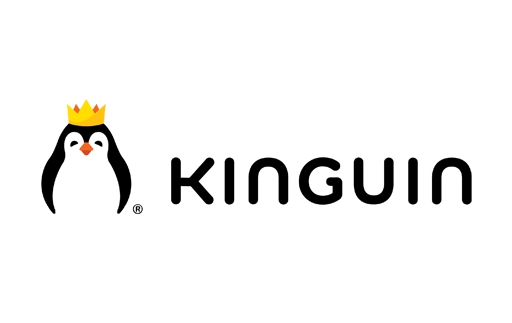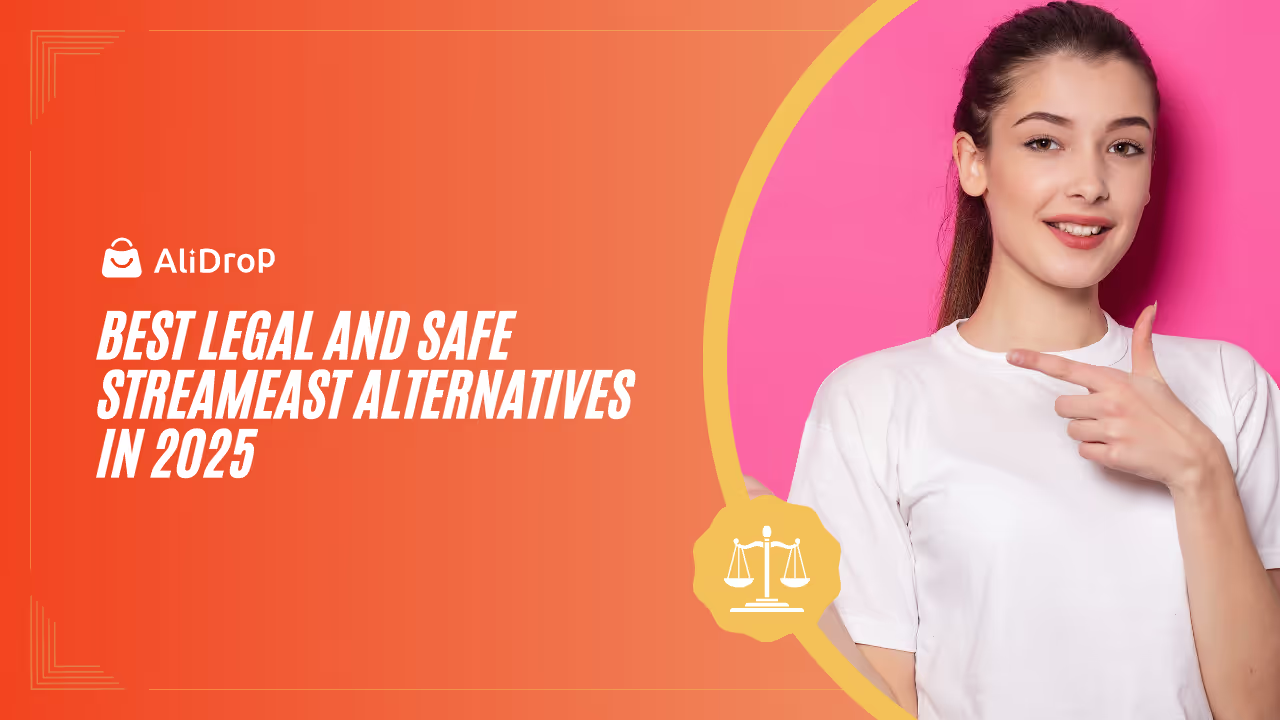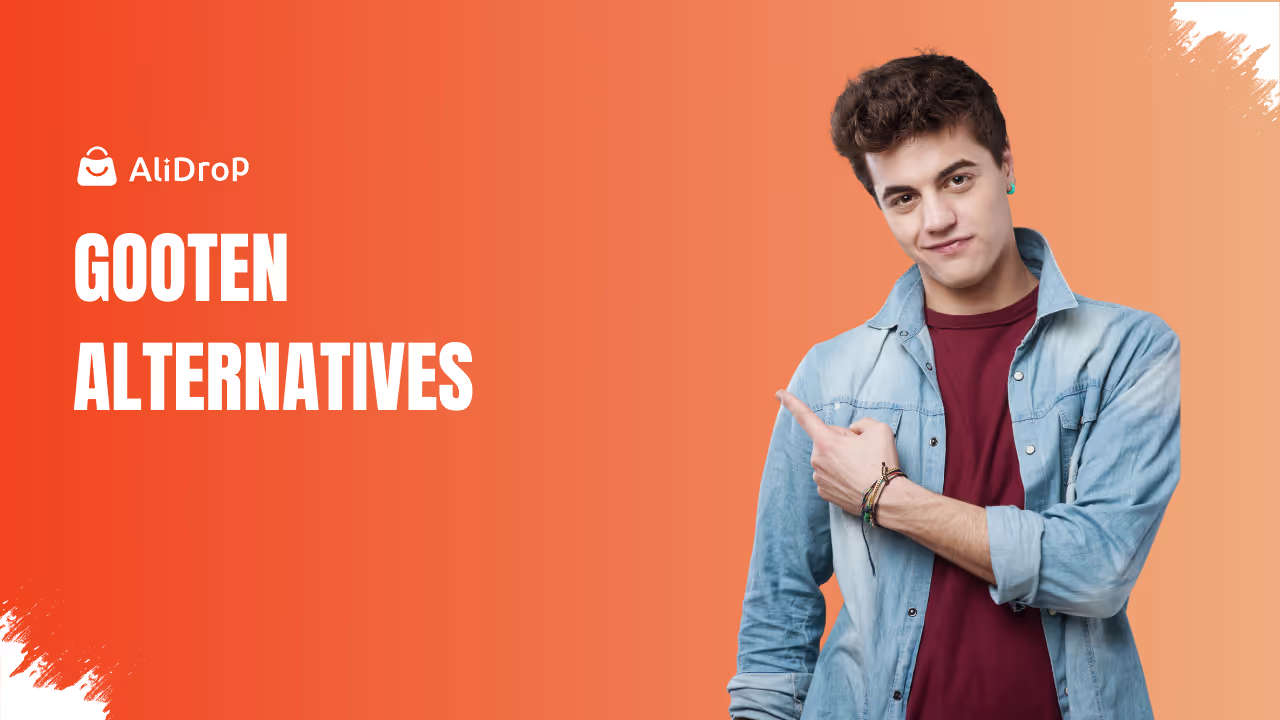If you're a gamer or someone looking for software at a discount, you've probably come across Kinguin. It’s one of the go-to platforms for buying game keys, software, and digital items, often at prices that make you wonder: “Is Kinguin legit?” With third-party sellers and a marketplace model, it can be tough to know what you're really getting.
In this guide, we’ll dive into the question: Is Kinguin safe? We'll break down how Kinguin works, the safety features it offers, and whether it’s truly trustworthy. From buyer protection programs to customer experiences, we’ll cover it all. So, if you're thinking of buying your next game key on Kinguin, keep reading. By the end, you'll have a clearer picture of whether it's the right platform for you, or if you should look elsewhere. Let’s get started!
What is Kinguin? A Deep Dive Into the Game Key Marketplace

Kinguin is a global online marketplace that connects buyers with third-party sellers offering digital products like game keys, software, and in-game items. Unlike platforms like Steam, Kinguin doesn't sell products directly. Instead, it acts as a middleman, letting sellers list their digital goods and offering buyers a chance to snag great deals.
This model gives consumers a wide range of products at competitive prices, but it also means you're relying on third-party sellers for the keys and digital goods you purchase. So, let’s take a closer look at how Kinguin operates and what you can expect when you make a purchase.
Kinguin’s Marketplace Model: How It Works
Think of Kinguin as the Amazon for digital products, but instead of a single seller, it’s a huge marketplace where countless third-party vendors list their game keys. Kinguin doesn’t handle the transaction directly—it simply facilitates it. When you buy from Kinguin, you’re technically buying from an individual seller who has listed their product on the platform. Kinguin's role is to ensure the transaction goes smoothly and offer protection for both the buyer and seller.
While this model opens up more opportunities for discounts and hard-to-find items, it also comes with its own set of challenges, mainly related to the legitimacy of the sellers and products. So, how does Kinguin manage these risks? Let’s explore further.
Kinguin’s Product Selection: What Can You Buy on Kinguin?
Kinguin offers a wide variety of digital products, from game keys to software and in-game currency. Whether you’re looking for the latest AAA game or an older title at a reduced price, Kinguin likely has it. But it’s not just limited to games. You’ll also find software packages, antivirus programs, and even digital gift cards. The platform’s expansive product range means you can find almost anything related to digital entertainment or tools for your computer.
However, while the selection is vast, the key to shopping smart on Kinguin is understanding that the products are from various sellers, meaning the experience can vary depending on whom you're buying from. This brings us to the next important question—how safe is Kinguin when it comes to buyer protection? Let’s find out.
Is Kinguin Safe to Use? A Deep Dive into Kinguin’s Safety Measures
When it comes to buying digital products, security is a top concern. With Kinguin being a third-party marketplace, you might be wondering: Is Kinguin safe? While the platform offers great deals, it’s crucial to assess whether your personal information and transactions are protected. In this section, we’ll break down Kinguin’s safety features, including buyer protection and payment security.
Kinguin’s Buyer Protection Program: Is It Reliable?
Kinguin’s Buyer Protection Program (BPP) is designed to give buyers peace of mind when making a purchase. If you buy a game key that doesn’t work, is invalid, or is different from the description, Kinguin will step in to help resolve the issue. This program offers a safety net, ensuring that if a product is defective, you’re not left empty-handed.
While the program is reliable, it's important to note that not every issue is automatically covered. If a key doesn’t work, the seller might need to verify the issue before a refund is processed. This means that response times can vary, and it’s important to follow the proper steps to get the best resolution.
Payment Security: How Safe Are Your Transactions on Kinguin?
Kinguin takes payment security seriously, using encryption to protect your personal and financial information during transactions. Whether you’re paying with a credit card, PayPal, or even cryptocurrency, your details are encrypted to prevent unauthorized access.
However, while Kinguin uses secure payment processors, it’s always best to choose payment methods that offer additional buyer protection, like PayPal. This adds an extra layer of security in case you run into any issues with a purchase.
User Reviews and Experiences: What Are Real Users Saying About Kinguin’s Safety?
While Kinguin has positive reviews regarding its security and customer service, some users have reported issues with certain sellers. A few buyers experienced problems with invalid keys or delayed deliveries. These problems tend to arise from individual sellers, not the platform itself, but they’re worth considering before making a purchase.
Overall, many users are satisfied with Kinguin’s safety measures, especially the Buyer Protection Program, but it’s essential to check seller ratings and reviews before buying.
How Kinguin Handles Disputes and Scams
When things go wrong, Kinguin has a process for handling disputes. If you encounter fraud or a product issue, you can open a dispute through their platform. Kinguin will investigate the situation and may offer a refund if the complaint is valid.
While the dispute resolution process is generally effective, response times can sometimes be slow, and some users have mentioned delays in getting issues sorted. To avoid disputes, it’s best to only purchase from highly-rated sellers with positive feedback.
Is Kinguin Legit? Analyzing Kinguin’s Business Practices and Legitimacy
When considering buying from Kinguin, it's essential to examine its legitimacy. Is it a reliable platform for digital product purchases? In this section, we will analyze Kinguin's business model, legal standing, and how it manages its marketplace of third-party sellers. We’ll also look at whether Kinguin complies with local and international laws and how it ensures product legitimacy.
Kinguin’s Resale Model: Is Reselling Game Keys Legal?
One of the key aspects of Kinguin’s business model is the resale of game keys. Sellers on the platform resell keys they’ve acquired through various means, such as bulk purchases or discounts from official channels. But this raises an important question: Is reselling game keys legal?
The answer is not black and white. While Kinguin itself is not directly responsible for the keys sold on its platform, the legality of reselling these keys can be complicated. Some game publishers have expressed concerns about key reselling, especially when the keys are purchased through unauthorized channels. However, Kinguin operates legally in most regions, with the platform itself adhering to local eCommerce regulations. Still, the resale of digital goods can sometimes be seen as a grey area in terms of intellectual property rights.
Is Kinguin Compliant with Local and International Laws?
Kinguin makes a concerted effort to comply with local and international laws. The platform adheres to basic eCommerce regulations, such as consumer protection laws, and works to ensure that the transactions on its site are legal and transparent.
That said, since Kinguin operates globally, it has to navigate various rules and regulations in different countries, especially when it comes to the sale of digital goods. In some countries, the resale of game keys may be subject to stricter laws, which could affect both sellers and buyers. To make sure everything is above board, Kinguin has incorporated measures to help both buyers and sellers stay compliant with the rules.
How Kinguin Ensures Legitimate Sellers and Products
To minimize the risk of fraudulent or illegal products, Kinguin has systems in place to ensure that its sellers are legitimate. Sellers must meet specific criteria and follow platform guidelines to list their products. Kinguin also uses customer reviews and ratings to assess seller reliability and product quality.
Despite these efforts, the responsibility for key validity ultimately falls on the individual sellers. As a buyer, you should always check the seller's ratings and reviews before making a purchase. Kinguin helps by providing these tools, but it's up to you to be cautious and make informed decisions.
Is Kinguin Worth It? The Pros and Cons of Buying from Kinguin
Now that we've examined Kinguin's safety and legitimacy, let’s dive into whether it’s worth your time and money. While Kinguin offers great discounts, there are certain advantages and drawbacks to consider before making your purchase. In this section, we’ll break down the pros and cons of shopping on Kinguin.
Kinguin Advantages: Why Gamers Love It
One of the main reasons people flock to Kinguin is for the discounts. The platform offers significantly lower prices than official digital stores like Steam and Origin. You can often find AAA titles, indie games, and software at up to 70% off their retail price. For budget-conscious gamers, this is a huge draw.
Another major advantage is the wide variety of products available. From popular games to hard-to-find indie titles, Kinguin has something for every type of gamer. The marketplace also offers software, in-game items, and even digital gift cards, making it a versatile platform for anyone who wants to purchase digital goods at discounted rates.
Kinguin Drawbacks: What You Need to Be Aware Of
Despite its advantages, Kinguin does have some drawbacks. One of the biggest concerns is the potential for invalid or expired keys. Since Kinguin operates as a marketplace for third-party sellers, the quality and reliability of the products can vary. This means that while you might find great deals, there’s always a risk that the product won’t work or won't be as described.
Customer service can also be hit or miss. While Kinguin does offer a Buyer Protection Program, some users report slow response times or difficulty resolving issues with sellers. If you encounter a problem, it might take some time before you get the support you need.
Customer Support: How Well Does Kinguin Handle Issues?
Kinguin’s customer support has received mixed reviews. While some users have had positive experiences and were able to resolve issues quickly, others have reported delays in response times, especially when dealing with more complex problems. The platform provides support through email and live chat, but the level of service can vary depending on the issue and the seller involved.
Kinguin’s Buyer Protection Program does offer some peace of mind, but it’s important to be prepared for potential delays when dealing with customer support. To avoid any major headaches, it’s always a good idea to purchase from trusted, highly-rated sellers who have a proven track record.
Kinguin vs. Competitors: How Does Kinguin Stack Up Against G2A, Steam, and Other Platforms?
When considering purchasing from Kinguin, it’s important to know how it compares to other digital marketplace giants like G2A, Steam, and Fanatical. Let’s dive into a comparison to see how Kinguin measures up in terms of pricing, security, and overall experience.
Kinguin vs. G2A: Which Marketplace Is More Reliable?
Both Kinguin and G2A are popular online marketplaces for game keys, but there are key differences. Kinguin generally has a better reputation for ensuring that the sellers are legitimate. It has a more structured vetting process and more robust buyer protection measures compared to G2A.
On the other hand, G2A has faced major criticisms in the past due to issues with fraudulent keys and a lack of transparency regarding how their keys are sourced. While G2A has improved its security over time, many buyers still feel uneasy about purchasing from the platform, especially when it comes to issues with key validity and customer support.
Kinguin’s added buyer protection program makes it a safer option for those who want peace of mind while shopping for discounted digital products.
Kinguin vs. Steam: Is Kinguin Better for Discounted Keys?
When it comes to purchasing games, Steam is the go-to platform for many gamers. It’s known for its huge library of games and regular sales, like the Steam Summer Sale, where users can snag games at steep discounts. However, even with sales, Steam’s prices tend to be higher than those on Kinguin, especially for popular titles.
Kinguin, as a marketplace, often offers better prices for games, including new releases and indie titles. However, buying from Kinguin comes with risks, particularly regarding the validity of game keys and the reliability of third-party sellers. If you're looking for a low-risk, more reliable experience with an official platform, Steam might be a better choice. But if you're looking for deep discounts and don’t mind the potential risks, Kinguin can be a more budget-friendly option.
Kinguin vs. Fanatical: Who Offers Better Deals on Game Keys?
Fanatical is another well-known platform that sells discounted game keys, often in bundles. One key difference is that Fanatical only offers keys sourced directly from developers or authorized distributors, ensuring that all products are legitimate and safe to use. This makes it a safer platform in terms of authenticity compared to Kinguin, where third-party sellers might sell keys from varying sources.
However, Kinguin has a much larger selection of games, including rare titles that are harder to find. For users who are looking for a specific game or a better deal, Kinguin often has more variety and better pricing. But if you prioritize buying from a platform with more guaranteed authenticity, Fanatical might be the better option.
Is Kinguin Legit for You? Final Thoughts on Kinguin’s Legitimacy and Trustworthiness
Kinguin is a legitimate platform, but it comes with its risks. While it offers great discounts on games and digital products, the reliance on third-party sellers means there’s a chance of encountering invalid keys or issues with customer support. As long as you check seller ratings and take advantage of Kinguin’s Buyer Protection Program, it can be a solid option for budget-conscious buyers.
However, if you prioritize security, fast customer service, and a fully reliable shopping experience, you might want to consider platforms like Steam or Fanatical. Kinguin is best suited for those willing to navigate a marketplace model for the sake of discounts.
FAQs About Kinguin's Legitimacy
Is Kinguin a trustworthy platform for buying game keys?
Kinguin is a legitimate marketplace with over 10 million users and a strong 4.5-star rating on Trustpilot. However, since it operates as a third-party marketplace, the reliability of individual sellers can vary. It's crucial to check seller ratings and reviews before making a purchase.
Can I get scammed on Kinguin?
While many users have positive experiences, some have reported issues such as receiving invalid keys or delayed deliveries. For instance, one user mentioned buying a game key that had already been used, with no refund provided. To minimize risks, always purchase from highly-rated sellers and consider using Kinguin's Buyer Protection Program.
How does Kinguin's Buyer Protection Program work?
Kinguin offers a Buyer Protection Program that assists in cases where a purchased key is invalid, used, or not as described. However, the effectiveness of this program can vary, and some users have reported challenges in obtaining refunds. It's advisable to provide all necessary documentation promptly and follow up as needed.
Is it safe to use PayPal on Kinguin?
Using PayPal on Kinguin can provide an added layer of security, as PayPal offers buyer protection. Many users have reported successful transactions when using PayPal, but it's essential to remain cautious and ensure you're purchasing from reputable sellers.
Are Kinguin keys legal and legitimate?
The legality of keys sold on Kinguin can be a gray area. Some keys may be sourced from unauthorized channels, potentially violating publisher terms. While Kinguin itself is a legitimate platform, the origin of individual keys can vary, and some users have expressed concerns about the legitimacy of certain products.























